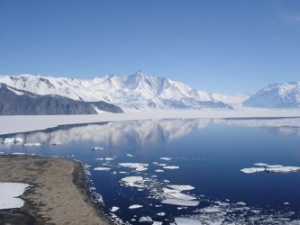Antarctica tourism continues to slide

With the formal end of the season in the Antarctic, the International Association of Antarctica Tour Operators (IAATO) has released its final numbers for 2010-11.
The total number of visitors to the region travelling with IAATO member-operators was 33,824 - a decrease of 8.3 per cent from the total of 36,875 passengers recorded last year.
The figures include those travelling on traditional expedition ships, yachts, larger cruise-only vessels as well visitors participating in land programs.
In reviewing the numbers by category, traditional small and medium-size expedition ships – which carry 500 or fewer passengers and conduct landings – accounted for 18,534 passengers.
There were a total of 14,373 passengers in the cruise-only category; e.g. larger vessels that carry more than 500 passengers and only travel through the area without disembarking their guests ashore in Antarctica.
A much smaller air-sea category that includes a combination of air transportation to Antarctica and small-ship cruising tallied at 531 visitors.
Land tourism accounted for an additional 386 visitors during the 2010-11 season.
With a ban on the use and carriage of heavy fuel oil (HFO) imposed by the International Maritime Organization (IMO) set to take place this August, IAATO projects an anticipated decrease in the cruise-only category from 14,373 to less than 5,000 for the 2011-12 season.
As a result, the number of voyages by 500-plus passenger vessels is expected to decrease from 12 this past season to just five in 2011-12.
Because of this and the lingering effects of the slow economy, the overall number of visitors travelling with IAATO operators next season is projected at 25,319, a 25 percent decline from the season just ended.
“Antarctic tourism numbers have been trending downward since the 2007-08 season when IAATO members carried a total of 46,265 visitors to Antarctica,” noted Steve Wellmeier, executive director of IAATO.
“The decline to date has largely been the result of the effects of the economic slowdown worldwide.
“While we expect this to continue playing a role, there is little question that the more significant factor in next year’s lower numbers is the consequence of the HFO ban.”

